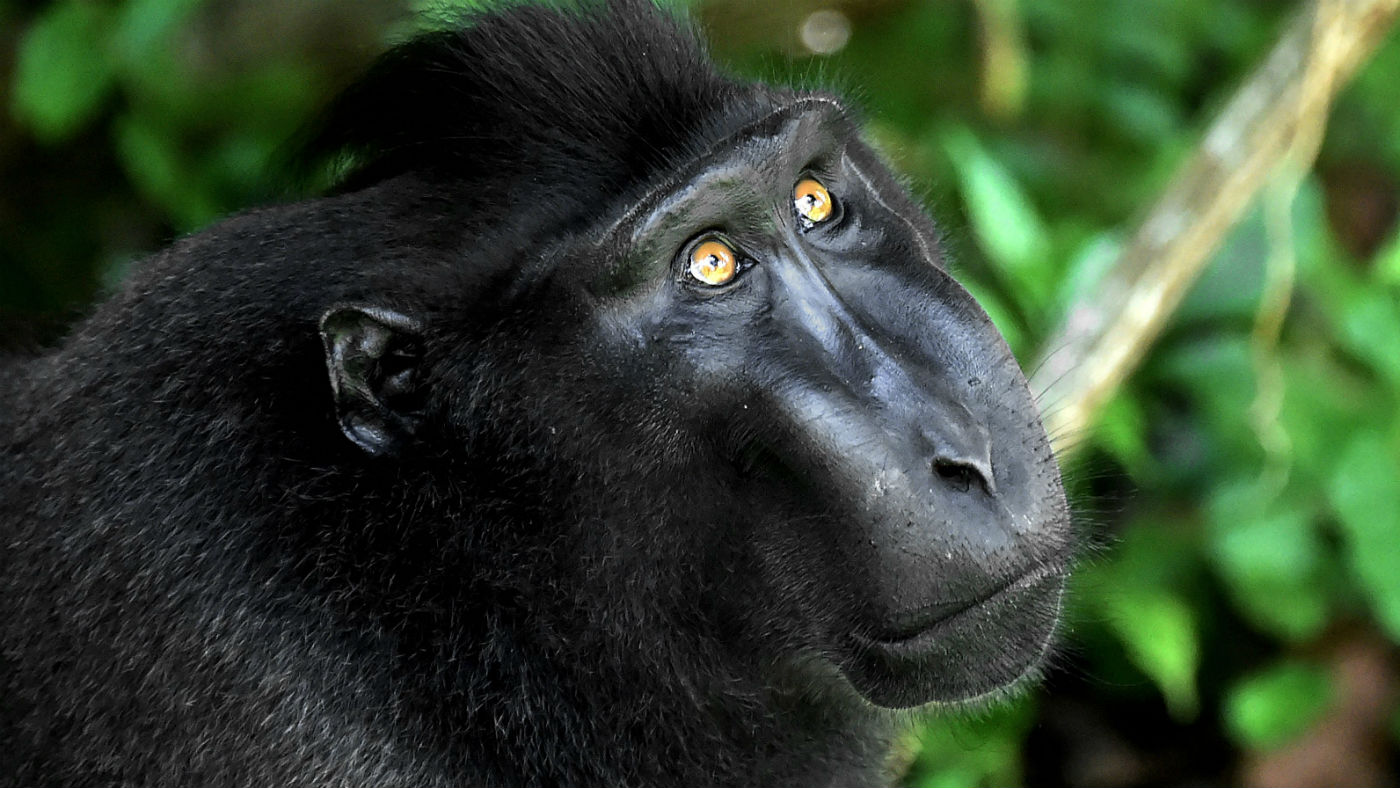US lawsuit over ‘monkey selfie’ copyright settled
Photographer agrees to pay 25% of future royalties to charity

A free daily email with the biggest news stories of the day – and the best features from TheWeek.com
You are now subscribed
Your newsletter sign-up was successful
A US photographer and a charity have settled out of court following a two-year legal battle over who owns the copyright of a famous selfie taken by a smiling monkey.
Photographer David Slater argued he was the legal owner of the copyright because the photo was taken with his camera by Naruto, a crested black macaque monkey, when they were in the Indonesian jungle, the BBC reports.
According to The Daily Telegraph, “the popularity of the pictures triggered legal action after Mr Slater asked Wikipedia to take down one of the pictures which it had published without his permission”.
The Week
Escape your echo chamber. Get the facts behind the news, plus analysis from multiple perspectives.

Sign up for The Week's Free Newsletters
From our morning news briefing to a weekly Good News Newsletter, get the best of The Week delivered directly to your inbox.
From our morning news briefing to a weekly Good News Newsletter, get the best of The Week delivered directly to your inbox.
However, the website refused, on the basis that the photo belonged to Naruto since the monkey had grabbed Slater's camera and taken the image without his involvement.
After the US Copyright Office ruled that animals cannot own copyrights, animal rights group People for the Ethical Treatment of Animals (Peta) took up the case and sued on behalf of the monkey in 2015.
A judge ruled against Peta in 2016, saying that animals were not covered by the Copyright Act, but Peta appealed.
Lawyers argued “Naruto v. David Slater” in a court hearing this summer in San Francisco.
A free daily email with the biggest news stories of the day – and the best features from TheWeek.com
But it was announced today that the two parties have come to an agreement and have asked for the case to be dismissed.
A joint statement said the photographer will give 25% of the funds he receives from selling the monkey selfies to registered charities “dedicated to protecting the welfare or habitat of Naruto”.
-
 How the FCC’s ‘equal time’ rule works
How the FCC’s ‘equal time’ rule worksIn the Spotlight The law is at the heart of the Colbert-CBS conflict
-
 What is the endgame in the DHS shutdown?
What is the endgame in the DHS shutdown?Today’s Big Question Democrats want to rein in ICE’s immigration crackdown
-
 ‘Poor time management isn’t just an inconvenience’
‘Poor time management isn’t just an inconvenience’Instant Opinion Opinion, comment and editorials of the day
-
 Epstein files topple law CEO, roil UK government
Epstein files topple law CEO, roil UK governmentSpeed Read Peter Mandelson, Britain’s former ambassador to the US, is caught up in the scandal
-
 Iran and US prepare to meet after skirmishes
Iran and US prepare to meet after skirmishesSpeed Read The incident comes amid heightened tensions in the Middle East
-
 Israel retrieves final hostage’s body from Gaza
Israel retrieves final hostage’s body from GazaSpeed Read The 24-year-old police officer was killed during the initial Hamas attack
-
 China’s Xi targets top general in growing purge
China’s Xi targets top general in growing purgeSpeed Read Zhang Youxia is being investigated over ‘grave violations’ of the law
-
 Panama and Canada are negotiating over a crucial copper mine
Panama and Canada are negotiating over a crucial copper mineIn the Spotlight Panama is set to make a final decision on the mine this summer
-
 Why Greenland’s natural resources are nearly impossible to mine
Why Greenland’s natural resources are nearly impossible to mineThe Explainer The country’s natural landscape makes the task extremely difficult
-
 Iran cuts internet as protests escalate
Iran cuts internet as protests escalateSpeed Reada Government buildings across the country have been set on fire
-
 US nabs ‘shadow’ tanker claimed by Russia
US nabs ‘shadow’ tanker claimed by RussiaSpeed Read The ship was one of two vessels seized by the US military